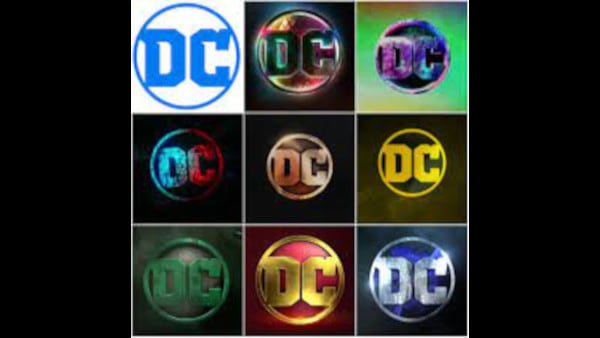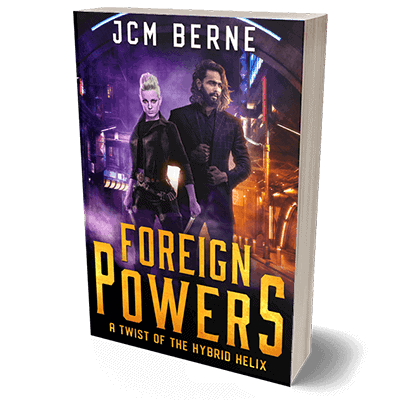The DC shows on CW (Arrow, Flash, Supergirl, Black Lightning, Legends of Tomorrow, etc.) have done a better than average job at minority representation. If you compare any of them to similar shows from, say, the end of the 20th century, you’ll find the casting is much more diverse. I’m going to use three shows – Black Lightning, Flash, and Supergirl – to illustrate the different types of representation and how they can both be used to good effect in genre fiction.
I think of representation as being of two types (I wrote a blog post about this):
Inclusion is simply having characters present who are from an underrepresented group (usually meaning females, LGBTQ+, racial minorities, religious and cultural minorities, and differently abled people). The more the characters in number, screen time, and lines of dialogue, the more inclusive the project. This level of representation is easy and has little to no impact on the storylines.
Aboutness is another level of representation where the character’s group identity affects the story. If a show has a Black character, it is about being Black IF changing that character’s race would require rewriting the show or change the meaning of parts of the show.
Before I use the CW to illustrate these ideas, let me be clear; both of these types of representation are important. Inclusion should be part of every (or almost every) media project, period. There are simply almost no occasions where it’s appropriate to have a large caste composed solely of straight white Christians. Aboutness is different – I would never argue that EVERY story needs to be ABOUT some sort of group identity, and I strongly suspect that while ANYONE can write something inclusive, ONLY a person who belongs to a particular group should be trying to write a story ABOUT that group.
I’m going to use the CW shows to illustrate these ideas.
Black Lightning
While this show has ended, it was a really nice example of both Inclusion and Aboutness.
Most of the main characters (probably 3/4) were Black. Obviously, the show was more than inclusive enough when it comes to race.
Additionally, the show was about being Black. It takes place in Freeland, a Black community. The characters have superpowers because of illegal medical experimentation that had happened in Freeland, and it’s clear that Freeland was chosen because of its largely Black population. The entire storyline harkens back to the Tuskegee experiments and America’s historical treatment of Black people. If the characters and town were switched to being, say, Italian-American, the storyline wouldn’t make sense – it would have to be significantly re-written.
The characters regularly face threats and challenges that are very specific to the American Black experience – things like police brutality and racist expectations of other people.
Black Lightning is about Blackness because the whole show would have to be rewritten (not just re-cast) if the characters were made white.
An interesting contrast is present with the show’s inclusion of sexual orientation diversity. One main character is a lesbian who has a significant long term relationship. That’s definitely inclusion! However, the couple faces very little in the way of challenges specific to their orientation. People are generally accepting of them, and they are accepting of their own gender identity. If we re-wrote the show, changing the love interest to a male, very little about the themes or storylines would have to change. I’m not saying that’s a bad thing, but Black Lightning wasn’t about lesbianism or homosexuality, it simply included some.
Supergirl
Supergirl cast the character of Jimmy Olsen with a Black actor. Inclusion: check!
Now go through every season with Jimmy in it and see how many lines of dialogue would change if he were re-cast as white. He’s a reporter, he’s reliable, a friend of Superman – all of these things are important. His Blackness is largely irrelevant to the character.
The same show has had a trans hero for the past several seasons (Dreamer). But Dreamer’s storylines – at least in her first season – are MUCH more about being trans than Jimmy Olson’s stories ever were about him being Black. Dreamer’s struggle with her identity – and even more, the struggles of those around her to accept her identity – have a lot to do with how her power comes to her (it is magic, inherited by a daughter, and Dreamer gets it even though she was born male, in a powerful metaphysical acceptance of her gender identity). The story would make no sense if she weren’t trans. Her first love story is also directly related to her being trans – the big conflicts and obstacles are all about gender identity and the insecurities around it.
Flash
Flash had inclusion backed into it from the start. Joe West, the man who raised Barry Allen is Black, as is Iris, his daughter and Barry’s love interest (as an aside, can I just mention how incredibly creepy it is that Barry marries his adoptive sister? And how rarely this is mentioned?)
Joe and Iris are fully fleshed out characters but there almost no storylines where either’s racial identity has any impact (I mean IN the show – in real life, Iris being Black has created a lot of controversy in the fan community). There are scenes where Joe makes some kind of statement about race, but I am pretty sure you could count them on one hand.
Why Does This Matter?
I’ve said it before, and I’ll repeat: Inclusion matters to everyone. Many underrepresented people suffer when they don’t see images like themselves in popular media (I’ve read countless stories from individuals saying this). Non-underrepresented people benefit from viewing the world as more diverse – it normalizes other people – and if you live in a non-diverse place, at least you should see some Black people on tv, presented as just normal human beings.
Aboutness matters as well. It’s important that stories about being Black or trans or Muslim or whatever are told, so people have a better chance to understand one another. Those stories are, however, much harder to get right, since they require a more sophisticated understanding of that group’s experiences.
I would not have made a good staff writer on Black Lightning. I think I could have written Flash.
One final point: Some white creators resist diversifying their projects, using the excuse that they aren’t competent to tell stories about characters who aren’t like them. These creators are right AND wrong. Yes, they probably shouldn’t be writing about being Black. But there’s no reason they can’t include Black characters in their work. When they say, “I can’t write a story about someone with a different identity, so I can’t include them in my work,” they’re being disingenuous. It’s not the same thing.
NOBODY is saying that EVERY work of fiction should be ABOUT identity; progressive are saying they should ALWAYS INCLUDE different identities.



0 Comments